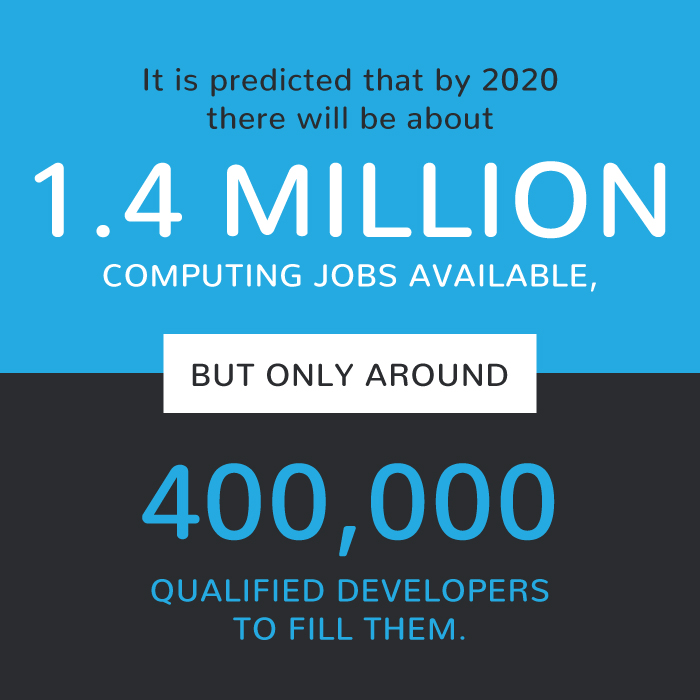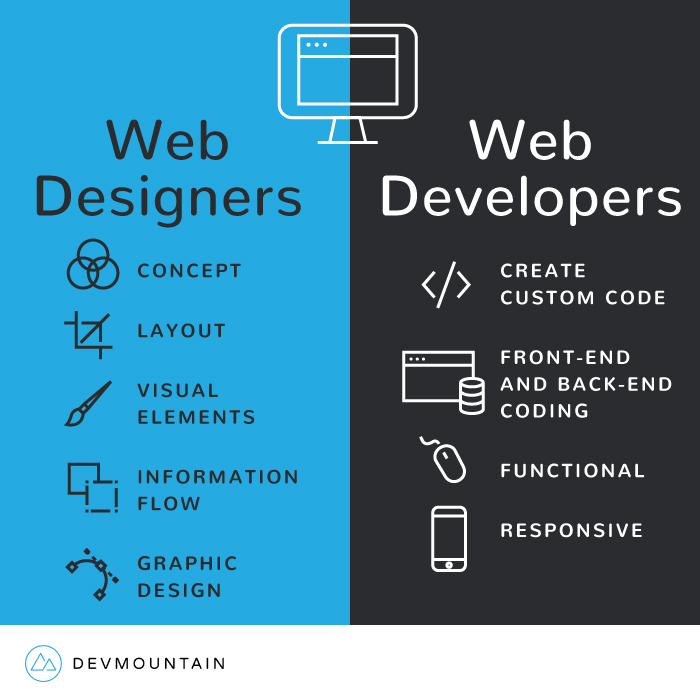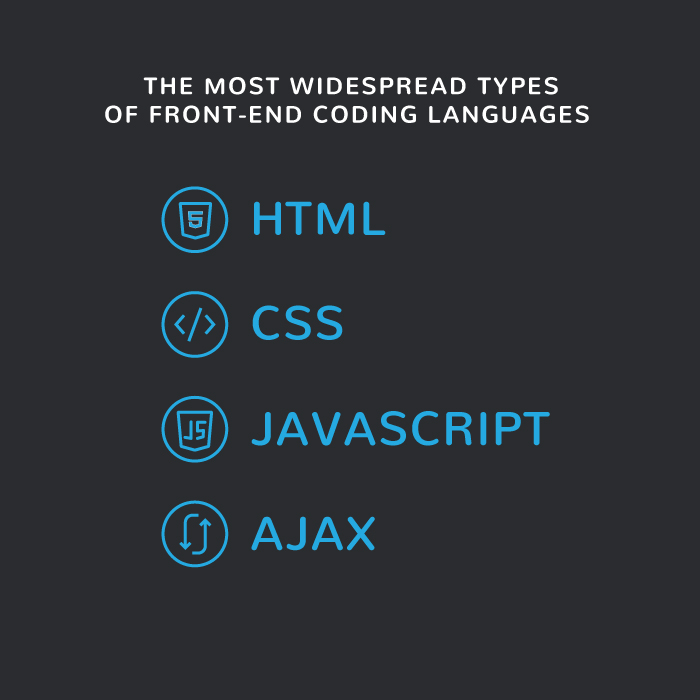There are now more than 3.58 billion internet users worldwide—nearly half of the total population of the planet. So naturally, there are a lot of opportunities to be found for someone looking to enter into a tech-related field, particularly programming or developer jobs. However, unless you are already in the industry, some of the jargon and exact job titles can sound intimidating, and it can be really tough to figure out which kind of job would be right for you.
One such position is a back-end web developer. What is a back-end web developer? To understand that, you need to understand the difference between back-end and front-end development. Simply put, front-end development deals with everything that the user sees—using coding skills to provide the optimum user design and experience.
On the other hand, back-end web development is concerned with providing the infrastructure to back that up, working server side developing and maintaining core features to make sure everything is functioning properly. When we look at front end vs back end web development, the front end is what everyone sees but other projects live and die through back-end development.
What is it like to be a back-end web developer? (Including Front-End vs Back-End Developer Salaries)
Why should you become a back-end web developer? Back-end developer salaries, job prospects and lifestyle are all considerations, so let’s take a look at what you can expect as compared to front-end developer salaries, job prospects and lifestyle.
As with any job, back-end web development salary will differ from state to state, and according to your exact position and experience. However, current national average web developer salary is $69,525, with the very top earners demanding up to six figure salaries.You might have a more personalized salary if you end up getting into the freelance world. You can view regular back-end web developer salary updates here.
It might also be worth noting that an average back-end web developer salary, as well as the peak salary is slightly higher than that of a front end web developer salary—though salary should never be your first reason for choosing a career. But, while we are talking about it, the national average salary for full stack web developer salary is $93,402. Considering that full-stack web developers have responsibilities of a front-end and back-end developer, the average salary is higher than the others. The payscale varies for web and software engineer salaries depending on the type of web developer you want to be.
As far as job prospects go, it is competitive for back-end web developers, but you can rest easy that there will always be a demand for a back end web developer as long as your skills are up to scratch. It is predicted that by 2020 there will be about 1.4 million computing jobs available, but only around 400,000 qualified developers to fill them.
What skills are needed to become a back-end web developer?
Perhaps the improved salary and job prospects for a back-end web developer can be attributed to the fact that it is known for being a slightly more technical position than a front-end developer. According to the Beginner’s Guide to Web Development, some of the best coding languages for a back-end developer are:
JavaScript
- “We just can’t say enough about the importance of JavaScript on the web. 90.5% of professional developers use JavaScript for front-end development, but it also leads the pack for back-end use.”
Java
- “Java is an open-source, server-side coding language that is ideal for high-traffic sites. Additionally, Java is fast, scalable, features a vast development ecosystem, requires minimal software maintenance between versions, and is readable on any platform or device, thanks to the Java Virtual Machine (JVM).”
C#
- “C# is a programming language that is very similar to Java, making it an easy option to pick up for those who are already Java savvy. C# is object oriented, which means that it allows developers to define what kinds of operations can be applied to the data structure, making it a useful addition to a well-rounded developer’s toolbox.”
Of course, you will not be expected to know these languages before starting your education to become a back-end web developer. So what kind of person is typically suited for a career in back-end web development? Back-end developers are often interested in technology, strategy, and are able to conceptualize finished products. Good attention to detail, a knack for problem solving, and good communication skills are also beneficial.
How do you become a back-end web developer?
Though these kinds of programming jobs often seem daunting, in that they require a lot of knowledge and wide skill set, anyone with genuine interest in the field—combined with at least a few of the aforementioned character traits—has a chance of becoming a back-end web developer. And there are a few ways in which you can acquire the necessary skills.
First, you can go the traditional route: college. A computer science degree will give you a solid foundation and ironclad credentials for entering the field. The only drawbacks are the cost and time needed to complete a full college degree. Furthermore, if you do not have the grades from high school you may not get into a college that looks good on a resume.
Another option is to complete an intensive bootcamp. This could be either in person or online, and will be more focused, teaching you the languages that you need in order to apply for back-end developer positions. Depending on the bootcamp, this may be a cheaper option, and will certainly be quicker than a three or four year degree.
However you decide to embark upon a career as a back-end web developer, just know that you have a bright future ahead with plenty of job prospects; now all that’s left is to get to work!
[cta id=”585″ vid=”0″]












